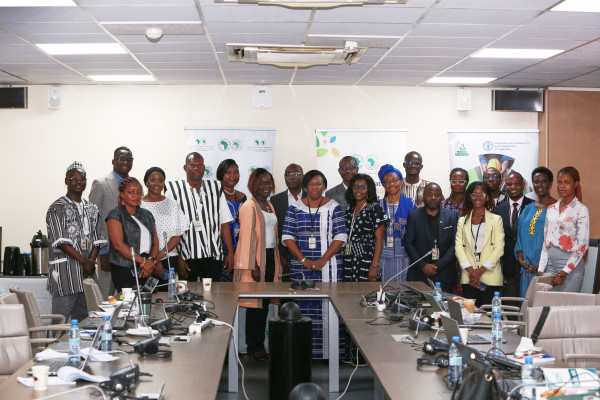
From 10 to 12 December 2024, the African Development Bank (www.AfDB.org), through the Climate Investment Funds (CIF) (https://apo-opa.co/40lzxkN), initiated a South-South exchange trip , which saw a delegation from Burkina Faso visiting Côte d’Ivoire, to share learning with Ivorien counterparts on the implementation of an information system for safeguards relating to the REDD+ initiative (Reducing Emissions from Deforestation and Forest Degradation) and its benefit-sharing mechanism.
Nathalie Gahunga, Head of the Bank’s Gender and Women Empowerment Division, commended the delegations from the two countries on their commitment to sharing their experiences of integrating gender in projects aimed at combating climate change and deforestation.
Bruno Zouré, a gender expert and Bank consultant, led a workshop for the participants. Explaining the concept of gender, often confused with biological sex, he noted that “gender refers to the roles, behaviours and responsibilities culturally assigned to men and women”, adding that gender is not about simple arithmetical equality or favouritism towards women, but instead the analyses of inequalities and disparities in order to achieve social justice and equitable development.
This exchange enabled participants to learn about setting up an information system on REDD+ safeguards, and about reviewing tools for integrating gender into climate policies and projects. These tools include those focused on gender-sensitive budgeting, gender marker systems, and on guaranteeing the inclusion of women and other vulnerable groups in the REDD+ benefit-sharing mechanism.
The “Leave No One Behind” concept and a human rights-based approach were also discussed, highlighting the importance of taking into account the differing impacts of climate change projects on men and women – to achieve greater social justice in project implementation.
The workshop was followed by a field visit to the Agnéby-Tiassa region (Agboville), to give the Burkina Faso REDD+ team an insight into implementation of REDD+ activities, as well as facilitate a discussion of gender-sensitive benefit mechanisms with beneficiaries of the PROMIRE project (Promoting zero-deforestation cocoa production for reducing emissions in Côte d’Ivoire).
Participants visited a 1,763-hectare forest restoration site belonging to Mr Raphael Agbé in the village of Ségbévi. Planted entirely with forest tree species, the site showcases efforts to restore biodiversity and strengthen the resilience of ecosystems.
Participants also visited a 2.45-hectare cocoa agroforestry site in the village of Ananguié, belonging to Sylvie N’Gbesso, who is working to restore the forest cover. Ms. N’Gbesso has achieved a substantial increase in production by including forest trees in her plantation, thanks to techniques learned through the PROMIRE project.
The event was part of a programme financed by the Climate Investment Funds (CIF) and implemented by the African Development Bank, in collaboration with the government of Burkina Faso.
Link to Web Story: https://apo-opa.co/3E3qSfk
Distributed by APO Group on behalf of African Development Bank Group (AfDB).


